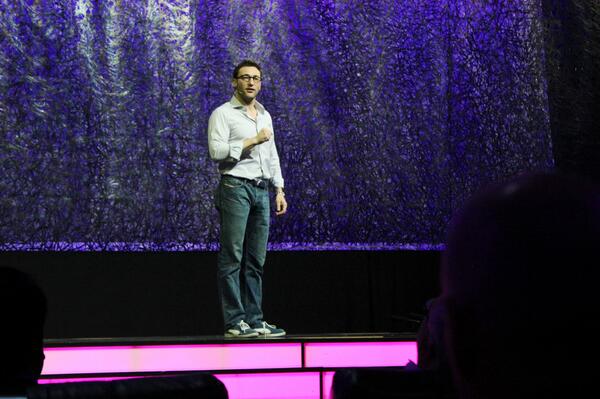What I learned at Leadercast 2014
Simon Sinek
Bishop Desmond Tutu
Leadercast is an event held in Atlanta, Georgia each spring. It is simulcast live to locations all over the world (and this year the portion with Bishop Desmond Tutu was simulcast back to Atlanta from South Africa). Unless I have an ABA meeting to attend during the week of Leadercast, I attend the live event. Over the years I have met several of the leadership experts that I count as mentors (even though I have only, very briefly, personally met two or three of them, much of my leadership learning has come from study of resources they have created). The event was held on May 9th 2014. I highly recommend this event to anyone interested in “lifting the lid” on their leadership (i.e. developing their leadership skills). You can find out more about the event at www.leadercast.com. The belief of Leadercast is that leading and being led by people who inspire and enlighten us, gives us strength and allows us to grow. Leadercast was built on a belief that the world needs better leaders—leaders worth following. For lawyer friends that follow me for leadership advice, remember that leadership principles apply not only to the non-legal world, but to the leadership of our profession as well; leadership of other lawyers, leadership of law firms and leadership of clients.
Here are a few tidbits of what I learned at Leadercast this year:
Andy Stanley, a local pastor from Atlanta opened the day up (as he has done several times). He truly is an expert on organizational visioning and leadership. He shared the theme of the day with us, which was: Becoming a ‘Beyond You” Leader. He taught that being a Beyond You leader is about fearlessly and selflessly empowering others to lead – those by our side, as well as those coming up behind us. Stanley taught that the value of our lives is measured in how much we give away. He used the example of a funeral and what is honored or remembered about a deceased. It is usually not how much a person made, but instead generosity and selfless acts of kindness. In life we celebrate generosity, but tend to envy accumulation.
Dr. Henry Cloud, a clinical psychologist and business consultant, furthered the topic of Beyond You Leadership. Most people are control freaks. Being a “Beyond You” leader, one who achieves both results and relationships, is about three things to understand: 1) that you will only really understand those you desire to lead when they understand that you understand them, 2) that there has to be something in you, some motivation or reason for leading, which is beyond you, and 3) that as leader we must be willing to give up control.
Award winning author and journalist Malcolm Gladwell, as he is famous for, made his leadership point by telling a story. He told the story of a leader in Northern Ireland after World War II. The story is beyond this blog, but the point he made was that followers will only follow rules, laws or policies of a leader when they see the leadership of the leader as legitimate. To be viewed as legitimate, followers must feel: 1) respect – the kind where they feel that leadership respects them as persons, 2) fairness – that leaders do not play favoritism but treat every individual fairly, and 3) reliability- that leaders are not arbitrary in their decision making.
Leadership Expert and Best Selling Author Simon Sinek spoke to the attendees about the environment that we create as leaders. He mentioned that with so much uncertainty in the world the one area where leaders have some control is the internal environment of the organization. He called it the “Circle of Certainty”. We must on a daily basis work to make the environment in our organizations positive. We must make progress on a daily basis. He used (as does many a leadership speaker) Southwest Airlines as an example. That company always comes up in studies as one of the best places to work. Is it really because they hire better, happier people? Sinek says that it is because of the environment the people are in – one created by great leaders who understand that environment is crucial.
These were just four of many speakers throughout a full day. Other speakers included Bishop Desmond Tutu, Former First Lady Laura Bush, former advertising sales executive and author, Laura Schroff, screenwriter and producer Randall Wallace and current CEO of SAP (the world’s leading producer of software) Bill McDermott.





![Bk-Nfe0IQAEfV8z[1]](https://www.tomgrella.com/wp-content/uploads/2014/04/Bk-Nfe0IQAEfV8z1.jpg)

![just_say_no[1]](https://www.tomgrella.com/wp-content/uploads/2014/04/just_say_no1.gif)
